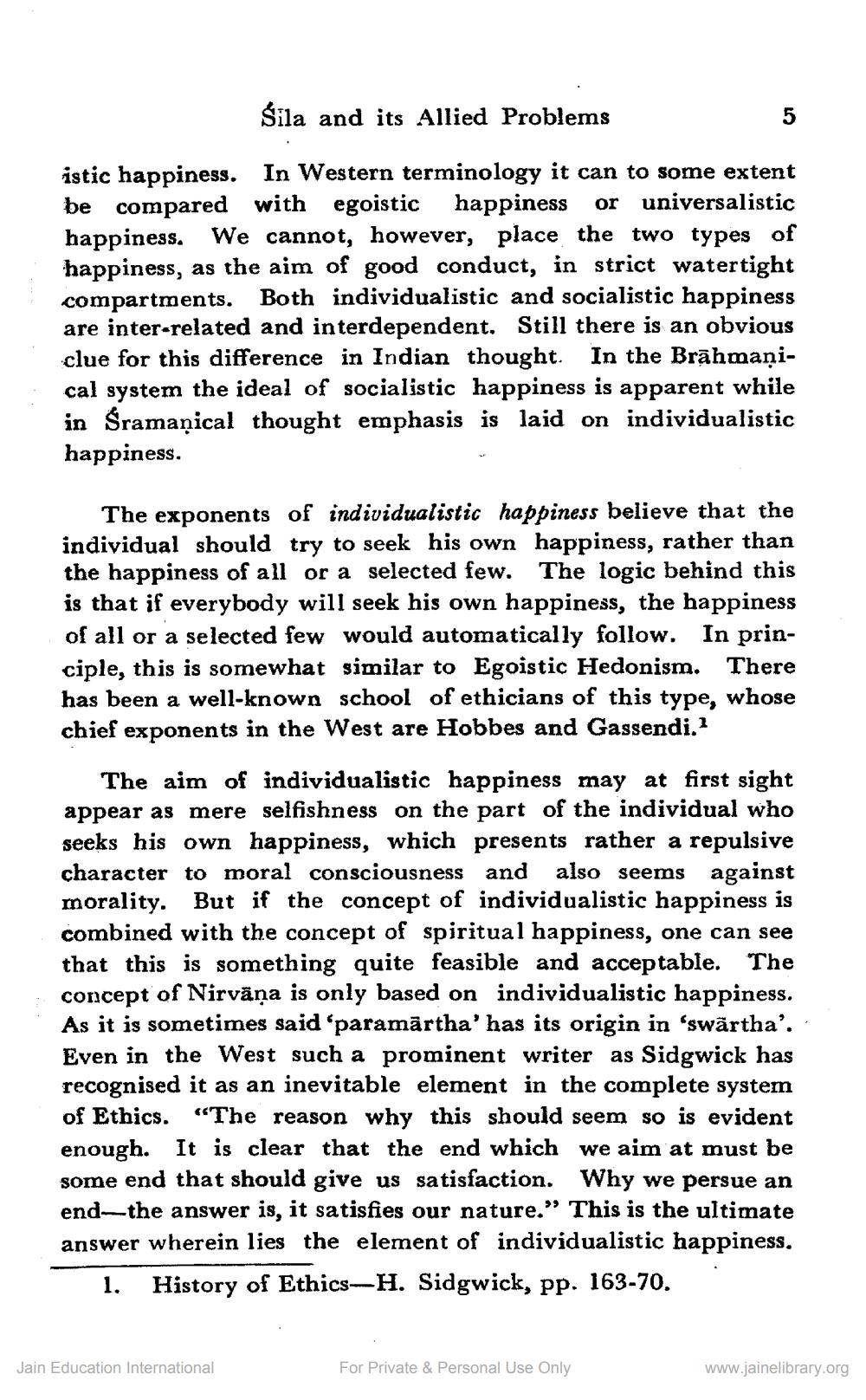________________
Sila and its Allied Problems
istic happiness. In Western terminology it can to some extent be compared with egoistic happiness or universalistic happiness. We cannot, however, place the two types of happiness, as the aim of good conduct, in strict watertight compartments. Both individualistic and socialistic happiness are inter-related and interdependent. Still there is an obvious clue for this difference in Indian thought. In the Brāhmaṇical system the ideal of socialistic happiness is apparent while in Sramaņical thought emphasis is laid on individualistic happiness.
The exponents of individualistic happiness believe that the individual should try to seek his own happiness, rather than the happiness of all or a selected few. The logic behind this is that if everybody will seek his own happiness, the happiness of all or a selected few would automatically follow. In principle, this is somewhat similar to Egoistic Hedonism. There has been a well-known school of ethicians of this type, whose chief exponents in the West are Hobbes and Gassendi.?
The aim of individualistic happiness may at first sight appear as mere selfishness on the part of the individual who seeks his own happiness, which presents rather a repulsive character to moral consciousness and also seems against morality. But if the concept of individualistic happiness is combined with the concept of spiritual happiness, one can see that this is something quite feasible and acceptable. The concept of Nirväņa is only based on individualistic happiness. As it is sometimes said 'paramārtha' has its origin in 'swärtha'. Even in the West such a prominent writer as Sidgwick has recognised it as an inevitable element in the complete system of Ethics. "The reason why this should seem so is evident enough. It is clear that the end which we aim at must be some end that should give us satisfaction. Why we persue an end the answer is, it satisfies our nature.” This is the ultimate answer wherein lies the element of individualistic happiness.
1. History of Ethics—H. Sidgwick, pp. 163-70.
Jain Education International
For Private & Personal Use Only
www.jainelibrary.org




